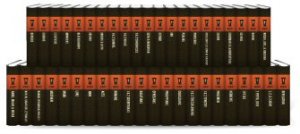
The Ezra & Nehemiah: EEC volume by Israel Loken—which is now available—well illustrates four things that make the EEC different.
- The EEC is meant for a large audience
The EEC editors—H. Wayne House, William D. Barrick, and Hall Harris—decided that the EEC audience would include the scholar, the pastor, the Sunday school teacher, and the person unfamiliar with the Bible. The EEC would address problems we all face. Ezra & Nehemiah by Loken considers problems and makes connections that are relevant no matter how deep someone’s relationship with Christ is. - The EEC covers nearly all types of biblical interpretation
Once the editors decided that the EEC would have a very wide audience, they asked: “What will make this commentary as helpful as possible?” Answering this question meant interpreting the Bible phrase by phrase from an evangelical perspective. The EEC would also incorporate the latest in biblical scholarship—combining historical, literary, and theological explanations with ideas for applying the Bible to everyday life. In Ezra & Nehemiah, Loken often discusses how the problems faced by God’s people after their exile in Babylon are not that different from the problems churches face today. He first makes this point through some biblical theology connections before connecting it to his thoughts about applying the Bible. - The EEC is created for a digital world
Digital books do not have page constraints. There is room for additional notes, excursuses on important issues, and anything else worth addressing. Loken included in Ezra & Nehemiah tables illustrating the historical events surrounding the book and interesting discussions like the literary connections between Ezra and Nehemiah. - The EEC focuses on the biblical story
Ezra & Nehemiah helps interpret the biblical story’s meaning for us. By analyzing the elements of narrative and the historical background of Ezra and Nehemiah, Loken explains how and why God’s people rebuilt Jerusalem and changed their way of worship. He continually emphasizes what we can learn about God’s story today from observing God’s story back then.
We’re not the only ones excited about Ezra & Nehemiah. In case you missed it, we published a blog post in April highlighting new endorsements for the Evangelical Exegetical Commentary by four leading biblical professors.
If you purchase the collection today you will receive the Ezra & Nehemiah volume immediately. Then, each time a new commentary is released, it will automatically download into your library at no additional cost.
Also, you can order the 44 volume, Evangelical Exegetical Commentary using a payment plan and spread those payments out for up to a year!





